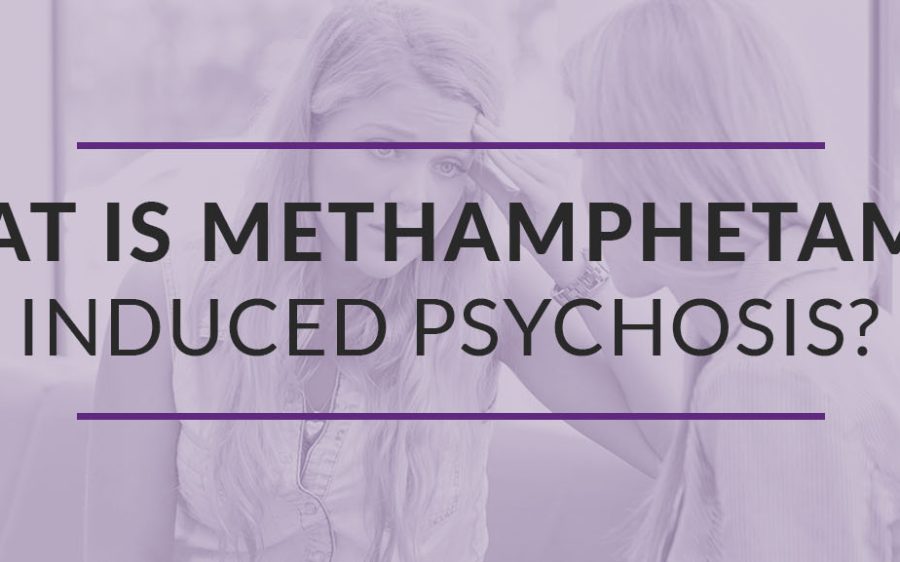
Content medically reviewed by Vicky Magobet, PMHNP-BC, on April 18, 2022.
Methamphetamine has fast become one of the first-choice drugs for many substance users around the world. Globally, it is estimated that 51 million people between the ages of 15 and 64 use methamphetamine and subsequently feel its devastating side effects — and specifically one of its worst, which is methamphetamine psychosis.
No single reason can be solely linked to the underlying cause of a substance use disorder. Factors such as peer pressure, genetics, emotional and environmental stress, anxiety and depression all contribute to someone developing a substance use disorder. For some users, the start of a methamphetamine addiction is experimental and quickly turns into regular and risky use. Sadly, other users are exposed to the addictive substance by people they know well, like family and friends.
Learn About Outpatient Treatment
Meth psychosis refers to an induced state in which one experiences symptoms such as delusions, visual and auditory hallucinations, disorganized speech and paranoia. It becomes increasingly difficult for a meth user experiencing psychosis to separate their perception from reality.
Research shows over 40% of people with meth use disorder experience psychosis symptoms. They are also two to three times more likely to experience a side effect of psychosis compared to people who do not use substances.
Methamphetamine, or "ice" as some people know it, causes significant negative physical, psychological, emotional and social effects for the substance user. Fortunately, safe and effective treatment options are available. The best way forward with treatment is to learn more about ice psychosis and how to avoid it.
Symptoms of meth-induced psychosis vary and may be apparent to people who do not use substances. Constant skin scratching or picking, sores on the face, arms and legs, hallucinations and violent outbursts are the most common symptoms identified.
Other side effects include:
In some cases, methamphetamine psychosis can be preceded by a pre-psychotic state identified through mild episodes of paranoia, delusions and hallucinations. Research shows that meth-induced psychosis may be an amplified state of a pre-existing mental health condition, presenting aggravated symptoms because of the substance use. Sleep deprivation is another factor leading to ice psychosis since meth users may go without sleep for several days while on a binge.
Meth psychosis can occur while using or withdrawing from the substance and can be experienced by people who may be genetically susceptible to psychotic episodes or have an existing condition such as schizophrenia. It’s important to note that psychosis related to mental health conditions without substance use can be characterized differently from psychosis occurring mainly due to meth use.
Many factors influence the duration and intensity of a meth psychosis episode. For example, the amount of substance consumed and the individual's environment — such as a public setting — may aggravate paranoia.
The intensity of psychosis varies from mild to severe. Mild states of psychosis include light symptoms of visual, auditory and speech disturbances, surges of energy, paranoia and restlessness. Severe states of psychosis include extreme forms of paranoia, hallucinations and delusions that cause the person to think and act irrationally or even violently.
Typically, mild meth psychosis lasts about 2-3 hours. A more severe psychosis episode could last up to a few days. Due to the unpredictable nature of a severe meth-induced psychosis episode, risk to the individual's personal safety and other people in the same environment increases.
The first step to treating meth-induced psychosis is treating the symptoms of psychosis.
Specialized behavioral healthcare services are available to treat specific forms of psychosis. Drugs such as anti-insomnia, anti-anxiety and antipsychotic medications may be used to treat the symptoms experienced during psychosis. The goal at this stage of treatment is to stabilize the person experiencing psychosis through detox. Once the symptoms have subsided, the focus shifts to treating the addiction.
Cognitive behavioral therapy is also used to treat the symptoms of meth-induced psychosis and assists long-term addiction recovery. Cognitive behavioral therapy is a highly recommended treatment, as it focuses on addressing cognitive distortions and improving emotional regulation and personal coping skills. For people who have an underlying mental health condition, rehab programs offer dual diagnosis treatment to address both the addiction and the symptoms of a diagnosed mental health condition.
Treatment after psychosis greatly depends on the willingness of the individual seeking assistance. This aspect and other factors will determine which form of therapy and medical treatment will be most beneficial in supporting a sustainable and long-term recovery.
For many, meth addiction takes priority over their own personal needs, goals and relationships, and the consequences go far beyond the physical, social, financial and psychological impacts. Treatment and therapy are available to those who wish to regain control over their lives.
At Diamond House Detox, we’re always ready to help you with an individualized treatment plan to address both addiction and co-occurring mental health disorders. If you’re looking for a comfortable detox experience or inpatient meth rehab program in Northern California or the Sacramento area, reach out to us. Coming from out of town? We happily offer transportation services from the Sacramento airport or downtown at the train station to our facility.
Start your recovery journey with Diamond House Detox today!
Links used: